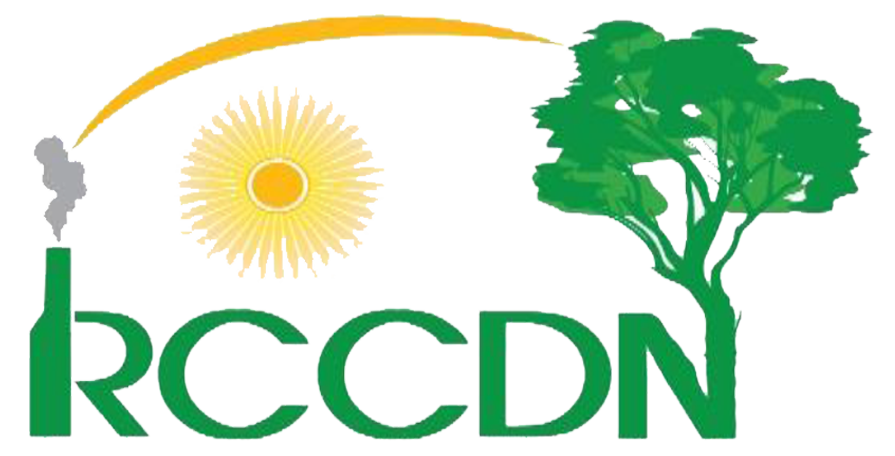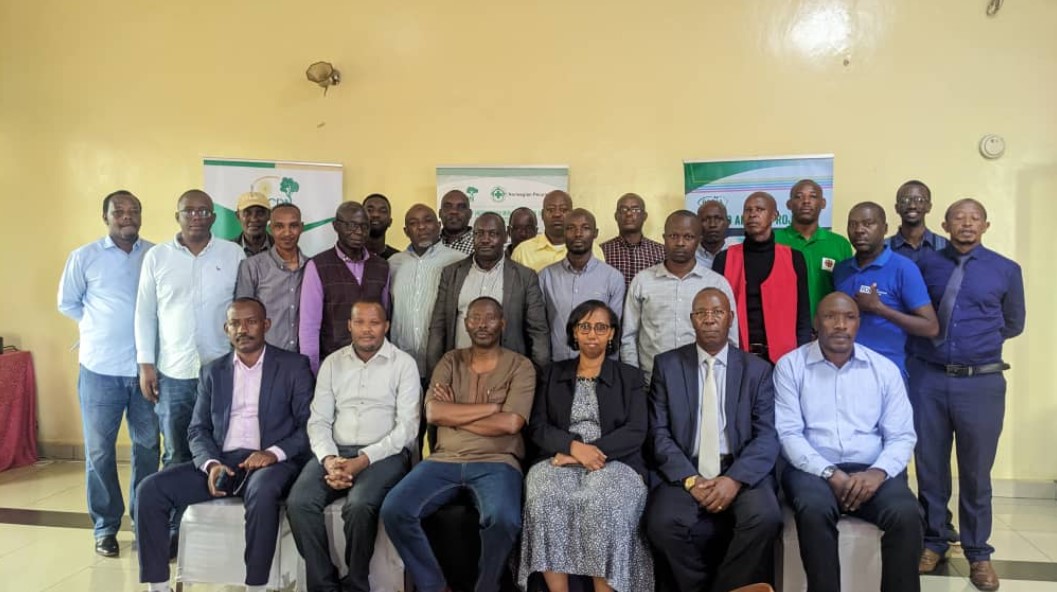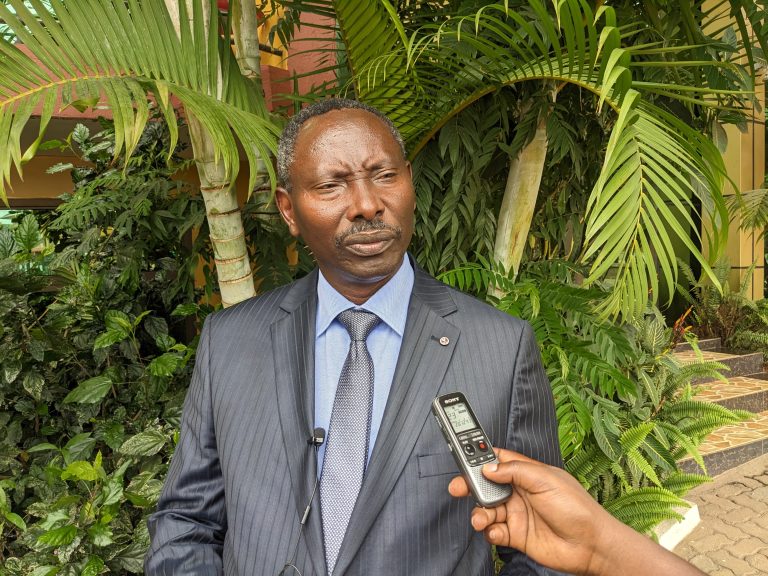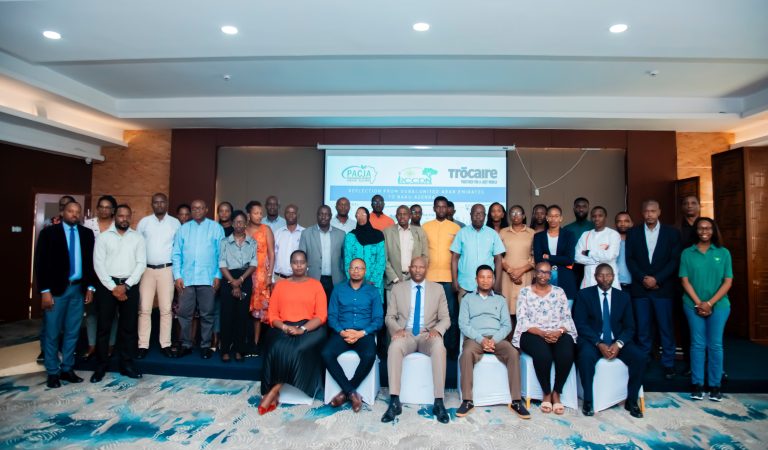RCCDN organized a one-day training for its members on forest, land restoration, and mining. The training was held in Kigali on April 28, 2023, aiming to analyze and delegate the current status and strategize on the way forward.
Rwanda Climate Change and Development Network conducted that training with the objective to analyze the current status of degraded forest, land, and mining as well as the future scenarios for rehabilitation. Not only that, but the training focused on understanding and applying fundamental skills in the formulation of forest, land, and mining rehabilitation programs and projects.
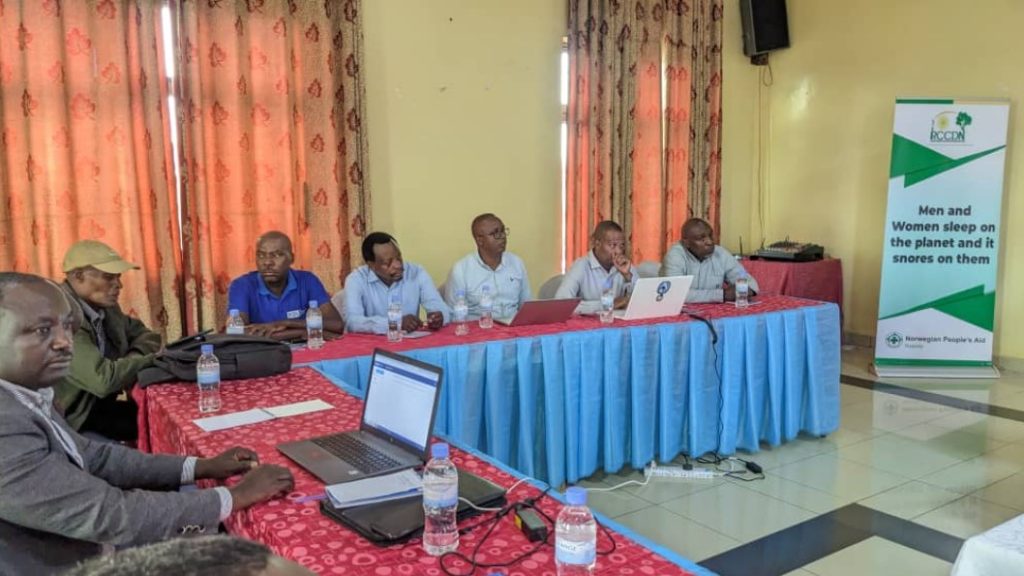
Forest, Land Restoration and Mining Thematic Working Group
There is a huge link between forest, land, mining, climate change and environment management and rural livelihood improvement and explore how these livelihoods of rural communities might be improved by keeping the forest, land and mining well enough and perfectly managed.
The RCCDN Coordinator, Faustin Vuningoma opened the training with remarks on the importance and roles of the two different thematic working groups and asked them to work hard and always put their activities on social platforms for raising awareness on land conservation and increase community awareness on forest, and landscape restoration and mining as well as the water, sanitation and hygiene since the RCCDN members can ensure the engagements of their beneficiaries.
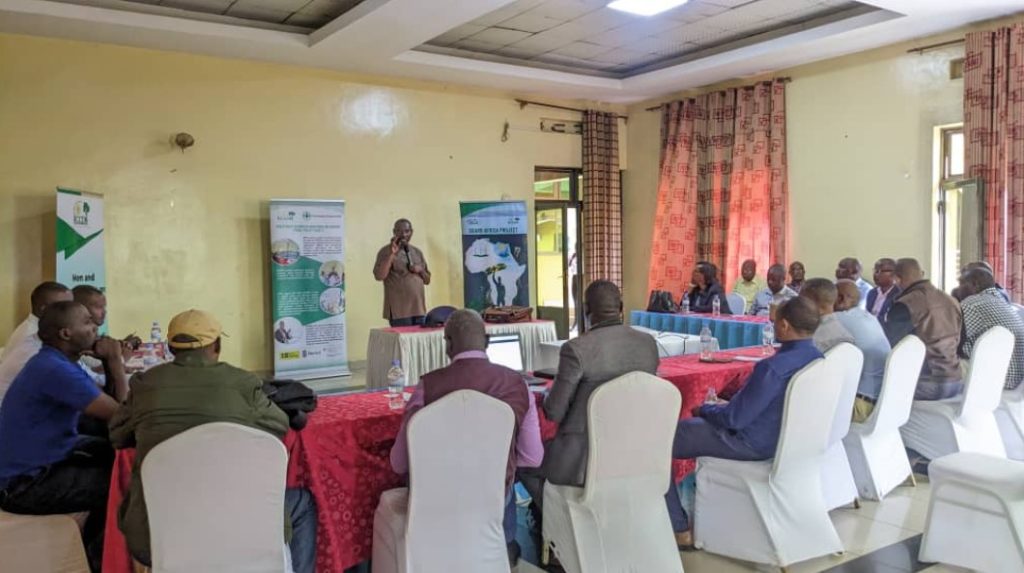
Faustin Vuningoma, the RCCDN Coordinator delivering his opening remarks
Francis Musinguzi who headed the Forest, Land Restoration and Mining thematic group training started by defining key elements to this concerning topic and explaining their roles which are:
- To define clear and measurable high-level objectives for each component of the thematic working group.
- To identify the concrete measures that need to be taken to attain well-defined results required resources, and desired impact.
- To maximize interdisciplinarity among members. To review current RCCDN structures and available resources for the implementation of the climate change initiative, including through innovative financing mechanisms so as to obtain a critical mass of resources and boost the organization’s delivery capacity globally, regionally, nationally, and in the field.
- To identify key priority areas for RCCCDN’s participation in joint country-level programming pertaining to climate change by MoE and REMA, and the potential for joint action on a more global scale with sister agencies.
- To also provide other suggestions as to how members’ needs could be met through the effective implementation of the initiative.

Francis Musinguzi taking the thematic working group through the key elements
The members of this thematic working group later came together for a group task and answered the asked questions from the presentation of Francis Musinguzi. The participants were then asked their priorities for 2023 which they shared. They also scripted how they all would be able to meet those top priorities, the anticipated challenges they may encounter along the process, and how they intend to mitigate those anticipated challenges.
With the help of: Djenny Mwizerwa
Aggrey Rwibasira
